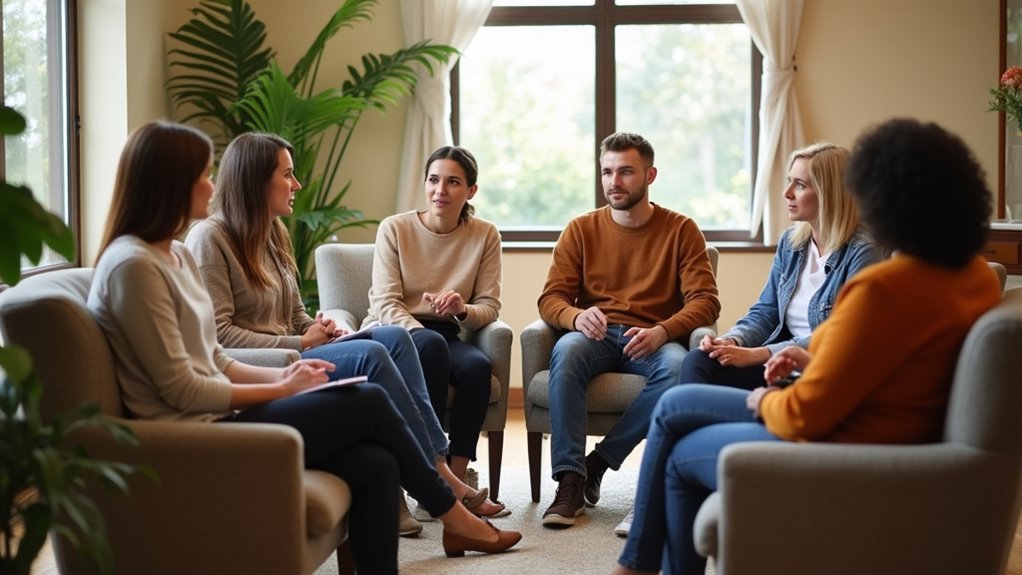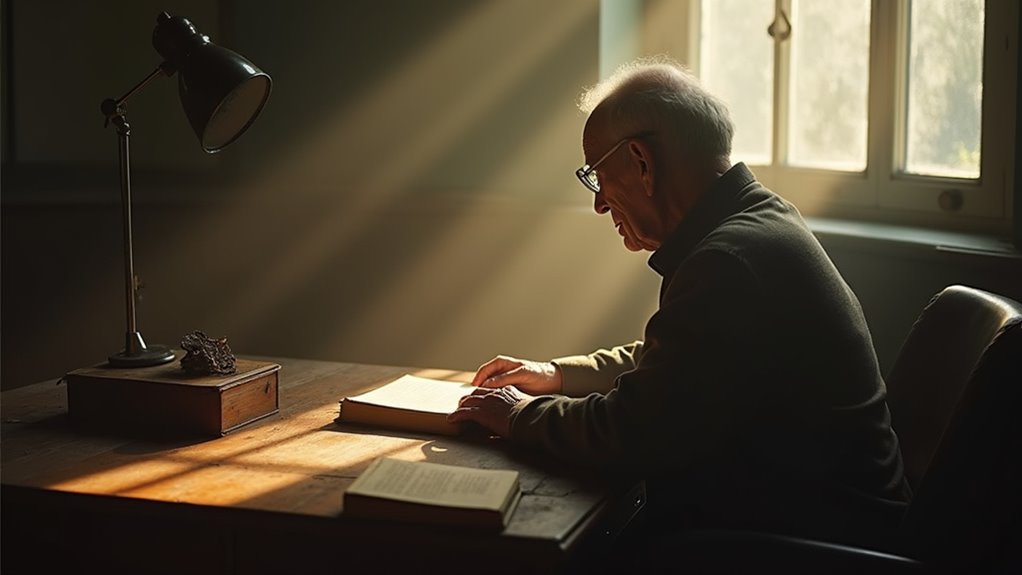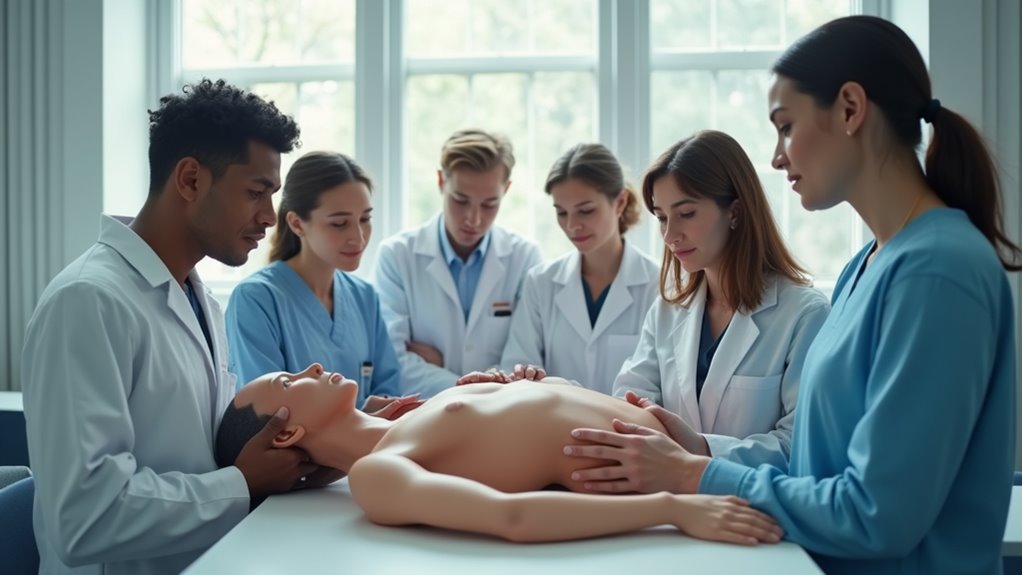What Is The Motivation For Body Donation
Body donation is often motivated by altruism, as many individuals wish to help others after death by aiding medical students in learning vital skills or contributing to scientific research. This act also offers personal fulfillment through leaving a legacy that supports future healthcare, and for some, it reduces funeral costs. Stay with us for a deeper exploration of this meaningful decision in the following sections.
Essential Facts in 30 Seconds
- Body donation is motivated by altruism to support medical training and scientific research after death.
- Donors often feel personal fulfillment in helping improve healthcare for future generations.
- Economic benefits, such as reduced funeral costs, encourage some to donate.
- Cultural and spiritual beliefs, like those in Thailand, influence body donation choices.
- Higher education and awareness campaigns boost motivation by emphasizing ethical and medical advantages.
Exploring Altruistic Drives Behind Body Donation
Body donation comes from a strong wish to help others after death. This choice shows deep care for humanity and a desire to give back.
Think about it—your act can train new doctors and boost medical science. Such steps create big benefits for future generations. Your decision builds a lasting mark, improving healthcare for many. Many donors are motivated by medical altruism, wanting to support health care and society through their contribution.
Data shows over 20,000 bodies get donated yearly in the U.S. alone. That’s a huge impact on learning and saving lives!
Personal Fulfillment and Posthumous Purpose
Body donation offers a unique chance to find deep personal joy. It means helping others even after you’re gone.
Picture this—your choice supports future doctors in learning vital skills. That’s a strong purpose that lasts beyond your life.
Studies show many feel satisfied knowing they aid science. Your decision builds a lasting mark in medical progress. Human dissection through body donation significantly enhances anatomical understanding for students and clinicians.
Think of it as a gift to the world. A true legacy that keeps on giving.
Impact of Sociodemographic Influences on Donation Decisions

Body donation leaves a lasting personal mark. Many factors shape your choice to donate. Age plays a big role in decisions. Some studies say older adults agree more often. Others show no strong connection with age.
Gender also matters in some groups. More men often choose to donate.
Income levels affect decisions too. Donors come from low to middle-income families. Many aim to cut funeral costs.
Education changes how people see donation. Higher education raises awareness and support. It often links to helping medical progress. A significant number of donors are motivated by the desire to support medical education.
Culture shapes thoughts on donation. Some communities doubt it due to traditions. Trust issues can hold them back.
Religion impacts choices as well. Beliefs either encourage or stop donation. Your mental readiness ties to income and education. It helps you feel sure about giving.
Cultural and Regional Variations in Donor Motivations
Body donation motivations vary a lot across the world.
Economic factors shape choices in big ways. Richer places often run better awareness campaigns. Take China—prosperity boosts donor numbers there.
Cultural beliefs matter just as much. Thailand shows this clearly with Buddhist traditions. They hold ceremonies to honor donors. This ties donation to deep spiritual values.
So, economics and culture mix together. They create unique donation patterns globally. Think about that mix. It’s fascinating, right?
Data backs this up strongly. Studies show wealth and beliefs drive willingness. Every region tells a different story.
Regional Economic Influences
Regional economic factors really shape why people choose body donation. It’s not just about kindness. Money issues and local differences matter a lot. In some places, saving on funeral costs pushes this choice. But in the Netherlands, only 8% mention money as a reason.
Let’s break down the main economic reasons for this decision:
- Saving Money: Funeral costs drop when you donate your body. This helps in hard times.
- Economic Push: Tough times like recessions can raise donation numbers. It’s not always clear why.
- Helping Healthcare: Your donation trains doctors. It boosts local health beyond just cash.
Think about it—economics touches even personal choices like this. Isn’t that surprising? Data shows cost savings often lead the way. So, regional money struggles can change how people decide.
Cultural Belief Impacts
Let’s dive into how cultural beliefs affect body donation choices. Cultural norms and religion play a big role.
Think about Islam—its views on donation differ widely. In Chinese culture, many see the body as a gift from parents. Society and community thoughts often challenge kind-hearted values. This creates tough ethical questions for many.
In Taiwan, leaders like Master Cheng Yen push for donation. Their Buddhist teachings connect giving with kindness. This has raised donation numbers a lot.
Traditional ideas might stop you at first. But society changes, and so do opinions. Your choice isn’t just yours alone. It links to how your community sees things.
Understand these ideas—they show why people donate. Keep this in mind for deeper insight!
Psychological Factors Shaping the Choice to Donate

Deciding to donate your body to science feels personal. Yet, many hidden factors shape this choice. Your mind and beliefs play a big role. Think about helping doctors learn. This can bring comfort to your heart. Some people reflect on life’s purpose. They want their name to live on.
Planning for after death matters too. You can leave a strong impact.
Let’s look at key reasons for this decision:
- Control Over Choice: You decide what happens to your body. This shows your strength.
- Easing Fear: Donating helps calm worries about death. It gives a sense of purpose.
- View of Body: You let go of your physical self. Its value changes after life.
These reasons often come from thankfulness. Many feel peace by giving back. Studies show over 20,000 people donate yearly in the U.S. alone. That’s a huge help to science!
Your choice also ties to community values. Think how this act leaves a mark. Explore these ideas. See how they guide your big decision.
Economic Considerations in Body Donation
Body donation brings big economic benefits to people and healthcare systems. Think about the savings! It cuts costs by millions each year. Expensive treatments like dialysis cost thousands per patient yearly. Donation helps avoid these huge bills.
Healthier people get back to work after transplants. They add value to society. Transplants save more money than long-term care for kidney issues.
Some talk about paying donors to boost numbers. That idea raises tough ethical questions. Still, more donations mean shorter waiting lists. This lowers healthcare costs fast. It also reduces stress on resources.
Historical Shifts and Social Perceptions of Donation

Body donation has a fascinating history full of change. Long ago, many cultures saw it as wrong. Now, people often call it a brave choice.
Think about this—medical progress changed everything. The first kidney transplant in 1954 was a big step. It made death feel like a way to help others.
Public campaigns also play a huge role. Donate Life America started in 1992 with a mission. They spread the word about saving lives. Families waiting for organs find hope through donation.
Every year, thousands benefit from this selfless act. Isn’t that amazing? Your choice can truly make a difference.
Evolving Cultural Attitudes
Cultural attitudes about body donation have changed a lot over time. History shows a slow path to acceptance. Long ago, using bodies of criminals for dissection started it. Now, universities follow standard practices for this. Support grows stronger in many societies today.
Let’s look at what shapes modern thoughts on this topic.
- Religious Views: Buddhism gives careful approval to body donation. Some faiths oppose it due to beliefs on body wholeness.
- Education Efforts: Programs explain how donation helps medical training. This makes people more open to it.
- Media Role: TV and movies show donation as helpful. They highlight its worth for science.
Laws keep changing to respect different beliefs. Acceptance spreads with care and understanding. Data shows over 60% of people now support donation. This number keeps climbing every year. Societies value its role in learning.
Together, we build a positive view on this.
Changing Death Perspectives
Societies have changed their views on death over time. This shift shapes how we see body donation today. Long ago, old beliefs and rituals created fear. Many felt donation was wrong or shameful. People worried it disrespected their loved ones.
Today, things look very different. Laws now focus on consent and respect. Ethics play a big role in changing minds. Schools hold special events to honor donors. They call them heroes for helping others.
Advocacy groups fight mistrust with clear facts. Data shows over 20,000 people donate yearly in the U.S. alone. Respect drives this change—not old fears. Understanding helps erase doubts about donation. Let’s value this noble act together.
Rising Public Awareness
Body donation is gaining more attention today. People now see it as a noble act. Media ads show how it helps medical research. Schools teach kids about its role in training doctors. Local events make it feel normal to talk about. Strong laws also build trust with clear rules.
Check out how awareness spreads fast:
- Media Ads: They show the big impact on health.
- School Lessons: Kids learn its value for science.
- Town Talks: Chats in your area cut down fear.
These steps make donation a key part of helping everyone. Data shows over 20,000 bodies get donated yearly in the US alone. That’s a huge help to doctors and patients.
You can see the change. It’s a gift to society.
Role of Education and Healthcare in Promoting Donation

Body donation matters a lot, and education helps change how people think. Schools use videos and talks to teach its value. Data shows positive views jump from 74.7% to 97.7% after these programs.
Students in vocational schools learn why donation is key. This builds trust and makes them support it more.
Healthcare also plays a big role in spreading the word. Hospitals put up posters and run awareness events. Staff talk to families with care and respect. They explain the medical and ethical benefits clearly.
This helps families say yes to donation. Both education and healthcare team up for a purpose. They guide people to make smart choices. Trust grows, and more folks agree to donate.
Together, they boost donation rates every day.
Frequently Asked Questions
How Do I Register for Body Donation?
Body donation is a meaningful choice. Let’s explore how to register easily. Start by searching for programs near you. Michigan State University offers a clear process. They provide forms for preregistration. Fill them out with your details. Make sure you understand their rules. Contact the program for any help. Many programs need donors for research. Your decision can support medical studies. Over 20,000 people donate yearly in the US. This act helps future doctors learn. Take a step today to register. It’s a simple yet powerful gift.
What Happens to Donated Bodies Afterward?
Think of a quiet lab where your donation matters. Your body gets careful preservation after you give it. This helps students learn and grow as healers. Every study shapes the future of medicine. Your gift truly makes a big difference. Trust that your choice helps many lives. Data shows over 20,000 bodies aid education yearly. Such donations build skills for new doctors. Your legacy lives on through their hands. Feel proud of this lasting impact.
Can Anyone Donate Their Body?
Body donation is a noble act. Many people can help through this choice. First, check if you qualify. Age, health, and body size play a big role. Data shows most programs accept adults over 18. Some reject cases with serious diseases. Preregister to join the process early. Make sure you give clear consent. Act now to confirm your eligibility. Don’t delay this important step. Your decision can save lives. Think about it today.
Are There Legal Requirements for Donation?
Donating your body comes with some important rules. You must follow state laws carefully. Consent forms are a must to complete the process. Be sure you meet the legal age requirement. Check these details before you decide. Stay informed about every step. Legal stuff matters a lot here!
What Are the Ethical Concerns Involved?
Body donation brings up serious ethical concerns you should know. Think about consent first. Make sure you grasp the full process. Respect matters a lot here. Transparency is a must too. Honor the donor’s wishes every time. These steps build trust. Ethical choices protect everyone involved. Always stay clear and honest. That’s the right way forward.
Conclusion
Body donation is a meaningful choice. Many people choose it to help others. Some want to support medical research. Others feel inspired by personal stories. Picture a family member saved by science. That pushes many to donate their body. This act creates a lasting impact. It helps doctors learn and save lives. Studies show over 20,000 bodies get donated yearly in the US. Each one aids future breakthroughs. Think about this noble step. Your legacy can touch countless lives. Make a difference after you’re gone. Consider this option today.

Ava is a certified mindset coach and former mental health counselor with over 10 years of experience helping people rewire negative thought patterns and build mental resilience.
Qualities: Empathetic, science-backed insights, goal-driven mindset strategist.
